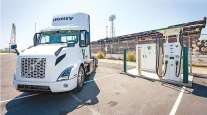Senior Reporter
2025: The Trump Era Returns
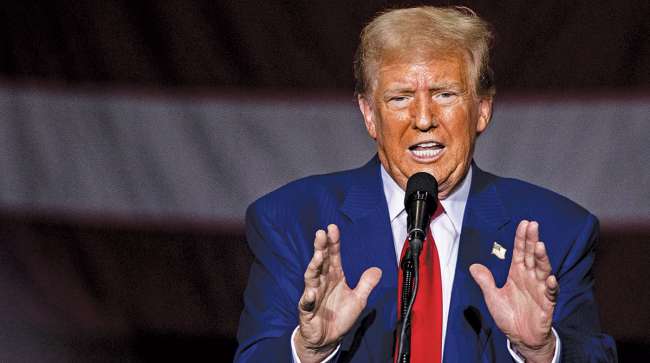
[Stay on top of transportation news: Get TTNews in your inbox.]
WASHINGTON — In 2025, the White House and Congress plan to shape policies for taxes and transportation while at the same time enhance the way Washington operates.
In late January, Donald Trump will formally return to the Oval Office as the 47th president. Trump and Republicans on Capitol Hill already have detailed a legislative outlook meant to reflect tax and budget proposals as well as transportation initiatives that were promised during last year’s presidential campaign.
Republicans won governing control of Congress for the next two years. Leaders, such as Speaker Mike Johnson (R-La.) and Sen. John Thune (R-S.D.), expressed a commitment to operate swiftly from the start of the new session. Their aim is to pass as much of Trump’s ambitious tax and economic agenda, primarily via comprehensive budget legislation.
“We are setting up for Trump to come in roaring back with the ‘America First’ agenda. That’s what we’re going to run with gusto beginning Jan. 3 when we start the new Congress when Republicans again are in control,” Johnson told Fox News on Dec. 12. “Right now, Democrats still control and that’s the problem.”

Johnson
By springtime the speaker said he anticipates the GOP agenda on the Hill to be well underway focusing on extending the Trump-era tax plan. By mid-March Congress will need to consider fiscal 2025 funding legislation to avert a federal shutdown. As Johnson put it, “And we get to March where we can put our fingerprints on the spending. That’s when the big changes start. And we can’t wait to get there.”
Thune echoed Johnson’s viewpoint when he detailed the upcoming agenda for colleagues in the Senate.
“Our schedule next year will be aggressive. Friday votes will be the norm, and we’re not going to be having much in the way of recess in the first 100 days. That’s because we have a lot of work to do,” the leader-elect said Dec. 17. “And we’re not going to get it done on the kind of abbreviated schedule that we’ve had in 2024.
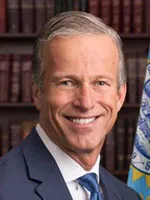
Thune
“One of our first priorities, of course, will be confirming President Trump’s nominees. The American people handed President Trump and Vice President-elect [J.D.] Vance a decisive mandate in November. And we are going to honor that mandate by making sure that President Trump has the people he needs in place as soon as possible — starting with the heads of the Cabinet departments.”
Trump’s nominee to lead the U.S. Department of Transportation — former Rep. Sean Duffy (R-Wis.) — has been well-received on Capitol Hill. He recently garnered the endorsement from a key Democrat, Sen. Tammy Baldwin. They both are from the Badger State.
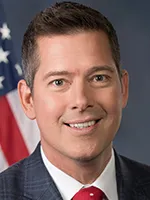
Duffy
“I look at all of the president’s nominees through the lens of ‘Will you be good for Wisconsin.’ For this nominee, I am thinking about the big infrastructure projects in the pipeline to make sure families can get to school and work safely, our water is clean to drink and swim in, and our businesses can get their goods on shelves — and it will be critical to have a secretary of transportation who understands the need to see these projects through,” she said Dec. 12. “Whoever is leading the Department of Transportation will also play a key role in building on our great bipartisan work to ensure that we use American companies, materials and workers when we rebuild our infrastructure.
“I’ve worked with Sean before to deliver for Wisconsin, and I plan to support his nomination because I am confident that we can work together to keep Wisconsin families safe and our economy moving forward.”

Baldwin
As the country’s top transportation officer, Duffy would oversee highway safety programs and freight-connectivity operations specific to the trucking industry, among other things. A priority for the freight sector is enhancing parking availability for the nation’s commercial drivers as well as relaxing Biden-era regulatory timelines linked to emission standards. If confirmed, Duffy would succeed Secretary Pete Buttigieg.
“During his time in the House, Sean Duffy was focused on issues facing our industry and supported pro-trucking policies to strengthen the supply chain and our ability to keep the nation’s goods moving safely and efficiently,” American Trucking Associations President Chris Spear said shortly after Trump’s announcement about Duffy. “Roads and bridges are our shop floor. We know Congressman Duffy understands that and the opportunity now before us to improve our transportation network by reducing congestion, investing in truck parking, enhancing highway safety and supporting the development of innovative technologies. He is an exceptional choice to lead the Department of Transportation, and we congratulate him on his nomination and look forward to working with him in this role.”
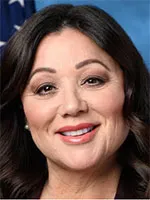
Chavez-DeRemer
To lead the Labor Department, Trump selected Rep. Lori Chavez-DeRemer (R-Ore.). ATA raised concerns about the labor nominee due to her support of certain workforce programs.
“We look forward to a thorough vetting and confirmation process for Lori Chavez-DeRemer, particularly on her past positions in Congress on the PRO Act and independent contractors,” Spear explained.
Infrastructure
Atop Trump’s transportation agenda is halting programs associated with advancing electric vehicle technologies at the expense of other consumer options. The Trump White House intends to focus mostly on promoting domestic energy production and improving existing fuel-powered vehicles.
Congressional Republicans will seek to reform and update aspects of the 2021 bipartisan infrastructure law. Led by Rep. Sam Graves (R-Mo.), transportation policymakers in the Republican caucus are expected to prioritize funds for surface transportation networks.
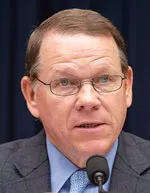
Graves
“The committee will hit the ground running in 2025,” said Graves in December. “Our work will include working with President Trump to advance his infrastructure priorities, developing the next long-term surface transportation reauthorization and reprioritizing policies that are consistent with the core purpose of infrastructure in the first place — moving people and goods safely and efficiently throughout our country.
“[Transportation and Infrastructure] is a committee where members can roll up their sleeves and get things done for the American people, and I look forward to getting back to work with my committee colleagues and the Trump administration to do just that.”
On the other side of the Capitol, Republican Sens. Ted Cruz of Texas and Shelley Moore Capito of West Virginia will lead Republicans’ push to update provisions in the 2021 infrastructure law pertaining to the Green New Deal. The progressive policy proposal informed Biden-era climate change programs.

Capito
“With President Trump back in the White House and a Republican-led Congress, we have the responsibility to promote and advance conservative, Republican policies within our conference,” said Capito, whose colleagues appointed her to serve as chairwoman of the Senate Republican Policy Committee in the next session of Congress.
“I look forward to working in this new leadership role to help build consensus with my colleagues in many of these conservative principles that Senate Republicans — now in the majority — can implement in the new Congress. We have a tremendous opportunity in front of us following this successful election cycle, and we have the tools to meet the challenges.”
DOGE
The Trump administration will include a unique feature meant to improve the way Washington works. While many have sought to introduce efficiencies to federal bureaucracy, installing significant changes to Washington’s modus operandi has proved difficult. Elon Musk, owner of social media platform X and a commercial transportation executive, as well as former Republican presidential candidate Vivek Ramaswamy were named by Trump to lead the ad hoc Department of Government Efficiency.

Elon Musk (left) and Vivek Ramaswamy have been tasked with leading the Department of Government Efficiency.
The president-elect explained on social media: “I look forward to Elon and Vivek making changes to the federal bureaucracy with an eye on efficiency and, at the same time, making life better for all Americans.”
DOGE garnered strong support from the speaker of the House and his caucus.
“We have long lamented the size and scope of the government, that it has grown too large. And let me be frank about this, government is too big, it does too many things, and it does almost nothing well,” Johnson said in December. “And the taxpayers deserve better. They deserve a more responsive government, a more efficient government, one that is leaner and more focused on its primary objectives.
“And that’s the opportunity that we have here now. We believe it’s an historic moment for the country, and these two gentlemen are going to help navigate through this exciting new day. Elon and Vivek don’t need much of an introduction here in Congress for certain, and most of the American people know what they’re capable of and what they’ve achieved.”
Want more news? Listen to today's daily briefing below or go here for more info:


